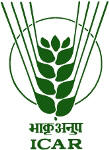

भाकृअनुप-भारतीय मृदा विज्ञान संस्थान
ICAR-INDIAN INSTITUTE OF SOIL SCIENCE
|
AICRP on Long-Term Fertilizer Experiments to Study Changes in Soil Quality, Crop Productivity and Sustainability (AICRP LTFE) Dr. R.H. Wanjari, Pr.
Scientist & I/c PC LTFE, AICRP LTFE Dr. Dhiraj Kumar, Scientist, PC LTFE
Unit, AICRP LTFE LONG-TERM FERTILIZER EXPERIMENTS have generated enormous and valuable information which could be used for sustainability of high input intensive agriculture. Introduction of high yielding varieties, irrigation and high analysis fertilizer accelerated the mining of nutrient other than supplied eternally from soil. To sustain the productivity it was essential to maintain the supply of nutrients. Since large amount of nutrient has to be applied to soil in chemical form which may have impacted soil properties and soil productivity in long run. Changes in soil fertility, as a result of imbalanced fertilizer use and faulty management practices take few years for appearance of disorders in soil but needs more time for rejuvenation. Long-term fertilizer experiments provide the best possible platform to study the changes in crop productivity, soil properties and processes, identifying emerging nutrient imbalances and deficiencies and overall impact on quality and health of soil. Therefore, to study the impact of chemical fertilizer on productivity and soil quality, the Indian Council of Agricultural Research decided to launch the “All India Coordinated Research Project on Long-Term Fertilizer Experiments (AICRP-LTFE)” in September 1970 at 11 centres. The work carried out at different centres of LTFE was reviewed by QRT during 1997 and recommended to enlarge the mandate and objectives of the project and changed the title as AICRP on “Long-Term Fertilizer Experiments to Study Changes in Soil Quality, Crop Productivity and Sustainability”. The purpose of conducting long term fertilizer experiments at fixed sites in different agroecological zones (AEZ) with important cropping systems was not only to monitor the changes in soil properties and yield responses and soil environment due to continuous application of plant nutrient inputs through fertilizers and organic sources but also to develop strategies and policies for rational use and management of fertilizers to improve soil quality and to minimize environmental degradation. Thus, the thrust of AICRP-LTFE is on productivity, sustainability and environmental safety.Read More..... |
|
Contents Provided,
Updated & Maintained by ICAR-Indian Institute of Soil Science, Bhopal (For any Query regarding the website, Please check the contact details available on the site) |
Website Hosted
By ICAR Data Center New Delhi |
